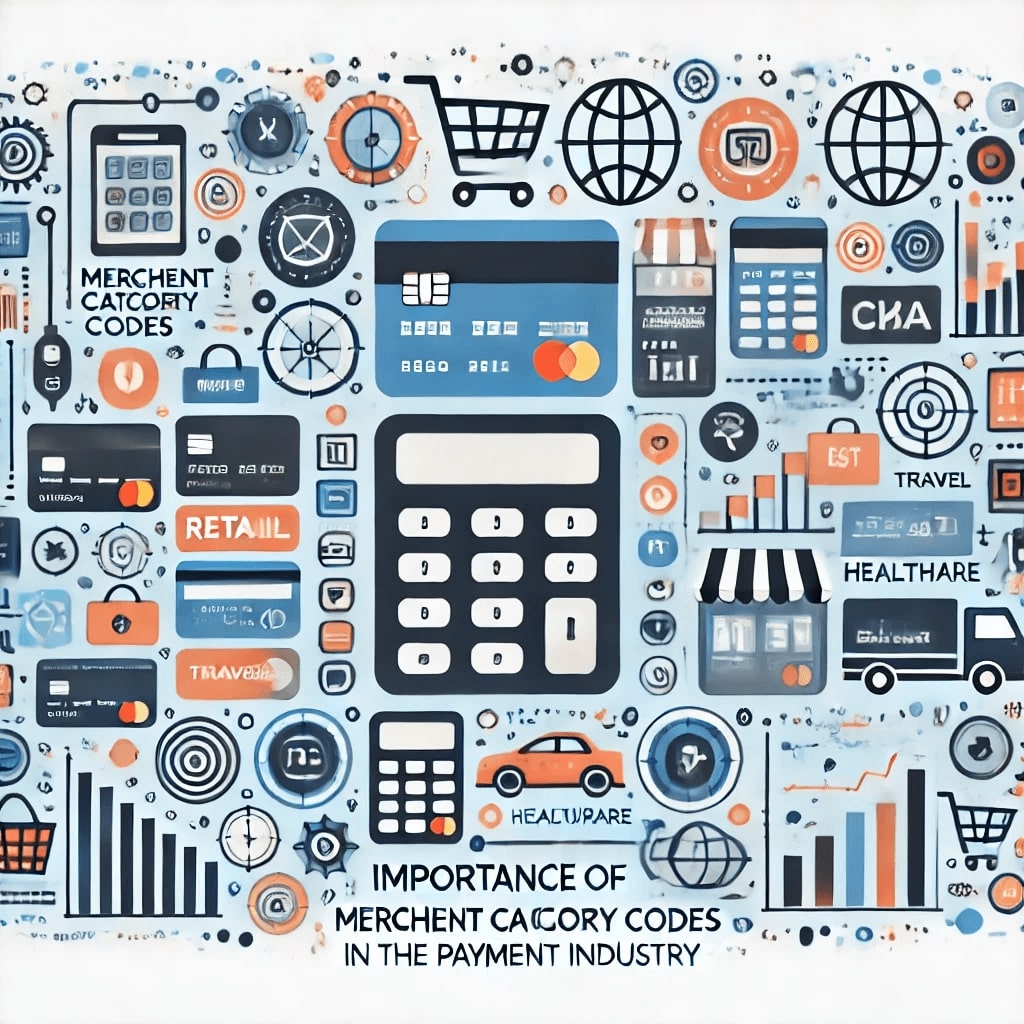
By dev October 4, 2024
Merchant Category Codes (MCCs) play a crucial role in the payment industry, providing a standardized way to categorize businesses based on the products or services they offer. These codes are essential for payment processors, card networks, and financial institutions to accurately identify and classify merchants.
In this comprehensive guide, we will explore the importance of MCCs, how they are assigned and categorized, common MCCs and their descriptions, the impact of MCCs on payment processing and fraud prevention, best practices for merchants to optimize MCCs, challenges and limitations of MCCs, and frequently asked questions (FAQs) about MCCs.
Understanding the Importance of MCCs in the Payment Industry

Merchant Category Codes are vital for various stakeholders in the payment industry. They enable payment processors, card networks, and financial institutions to accurately identify and categorize merchants, which is crucial for risk assessment, fraud prevention, and compliance purposes. MCCs also help in streamlining transaction reporting and analysis, allowing businesses to gain valuable insights into their sales patterns and customer behavior.
Merchant Category Codes are particularly important for payment processors and card networks as they help determine the interchange fees associated with each transaction. Interchange fees are the fees paid by the merchant’s acquiring bank to the cardholder’s issuing bank for processing the transaction. These fees vary based on the MCC assigned to the merchant, with different categories having different fee structures. Therefore, accurate MCC classification is essential to ensure fair and transparent fee calculations.
How MCCs are Assigned and Categorized
MCCs are assigned by the card networks, such as Visa, Mastercard, and American Express, based on the nature of the merchant’s business. Each card network maintains its own MCC database, which is regularly updated to reflect changes in the industry and emerging business categories. The assignment of Merchant Category Codes is typically done during the merchant onboarding process, where the merchant provides information about their business activities.
To assign an MCC, the card networks consider various factors, including the type of products or services offered, the primary source of revenue, and the business’s primary activity. For example, a restaurant would be assigned an MCC that corresponds to the food service industry, while a clothing store would be assigned an Merchant Category Code related to retail sales. The assigned MCC is then used to categorize the merchant for payment processing and reporting purposes.
Common Merchant Category Codes and Their Descriptions

There are thousands of MCCs in use today, covering a wide range of industries and business types. Here are some common MCCs and their descriptions:
- MCC 5411 – Grocery Stores, Supermarkets: This code is used for businesses primarily engaged in retailing a general line of food products, including fresh and packaged foods, beverages, and household supplies.
- MCC 5812 – Eating Places, Restaurants: This code is used for businesses primarily engaged in providing food services to customers, including restaurants, cafes, and fast-food establishments.
- MCC 7999 – Amusement Parks, Circuses, Carnivals: This code is used for businesses primarily engaged in operating amusement parks, circuses, carnivals, and other recreational attractions.
- MCC 5941 – Sporting Goods Stores: This code is used for businesses primarily engaged in retailing new sporting goods, such as equipment, apparel, and accessories.
- MCC 7230 – Beauty and Barber Shops: This code is used for businesses primarily engaged in providing hair care, beauty, and grooming services, including salons and barbershops.
The Role of MCCs in Payment Processing and Fraud Prevention
MCCs play a crucial role in payment processing and fraud prevention. Payment processors and card networks use MCCs to identify high-risk industries or businesses that may be more susceptible to fraud. By analyzing transaction data associated with specific MCCs, these entities can detect patterns and anomalies that may indicate fraudulent activity.
MCCs also help in determining the appropriate interchange fees for each transaction. Interchange fees are the fees paid by the merchant’s acquiring bank to the cardholder’s issuing bank for processing a transaction. These fees vary based on the MCC, with higher-risk industries typically attracting higher interchange fees.
Furthermore, MCCs enable payment processors to implement fraud prevention measures, such as transaction monitoring and risk scoring. By analyzing transaction data associated with specific Merchant Category Codes, payment processors can identify suspicious patterns and flag potentially fraudulent transactions for further investigation.
Best Practices for Merchants to Optimize Merchant Category Codes
Merchants can optimize their Merchant Category Codes to ensure accurate categorization and minimize potential issues with payment processing and fraud prevention. Here are some best practices for merchants:
- Provide accurate and detailed information during the onboarding process: When applying for a merchant account, it is crucial to provide accurate and detailed information about your business activities. This includes providing a clear description of the products or services offered, the primary source of revenue, and any additional relevant details.
- Regularly review and update your MCC: As your business evolves, it is essential to review your assigned MCC periodically. If your business activities change significantly, you may need to request a reclassification to ensure accurate categorization.
- Understand the implications of your MCC: Different MCCs have different fee structures and risk profiles. It is important to understand the implications of your assigned MCC, including the interchange fees associated with it, and how it may impact your payment processing costs.
- Monitor your transaction data: Regularly monitor your transaction data to identify any anomalies or discrepancies. If you notice any issues with your MCC classification or suspect fraudulent activity, contact your payment processor or acquiring bank immediately.
Challenges and Limitations of MCCs

While Merchant Category Codes provide a standardized way to categorize merchants, they are not without their challenges and limitations. Here are some common challenges and limitations associated with MCCs:
- Limited granularity: Merchant Category Codes provide a broad categorization of merchants but may not capture the nuances of certain businesses. For example, a specialty store that sells unique products may not fit neatly into an existing MCC category, leading to potential misclassification.
- Lack of consistency across networks: While the major card networks maintain their own MCC databases, there may be inconsistencies in how MCCs are assigned and categorized. This can lead to discrepancies in fee calculations and reporting across different networks.
- Difficulty in obtaining reclassification: If a merchant believes their assigned MCC does not accurately reflect their business activities, requesting a reclassification can be a complex and time-consuming process. This can result in delays and potential issues with payment processing.
- Limited transparency: MCCs are primarily used by payment processors, card networks, and financial institutions for internal purposes. Merchants may have limited visibility into how their MCC classification impacts their payment processing costs and risk assessment.
Impact of MCCs on Payment Processing Fees and Rates
Merchant Category Codes have a significant impact on payment processing fees and rates. Interchange fees, which are a significant component of payment processing fees, vary based on the MCC. Higher-risk industries, such as travel and entertainment, typically attract higher interchange fees compared to lower-risk industries like retail.
By accurately reporting their Merchant Category Codes, merchants can ensure that they are classified correctly and benefit from lower interchange fees associated with their industry. This can result in substantial cost savings for businesses, especially those operating in industries with lower interchange fees.
Frequently Asked Questions (FAQs) about Merchant Category Codes
Q.1: What is the purpose of Merchant Category Codes (MCCs)?
Merchant Category Codes (MCCs) are used to categorize businesses based on the products or services they offer. They play a crucial role in payment processing, fraud prevention, and compliance.
Q.2: Who assigns MCCs to merchants?
MCCs are assigned by the card networks, such as Visa, Mastercard, and American Express, based on the nature of the merchant’s business.
Q.3: Can merchants request a change in their assigned MCC?
Yes, merchants can request a change in their assigned MCC if they believe it does not accurately reflect their business activities. However, the process can be complex and time-consuming.
Q.4: How do MCCs impact payment processing fees?
MCCs are used to determine interchange fees, which are the fees paid by the merchant’s acquiring bank to the cardholder’s issuing bank for processing the transaction. Different MCCs have different fee structures.
Q.5: Can MCCs help prevent fraud?
Yes, MCCs play a crucial role in fraud prevention by enabling the identification of suspicious transactions. They provide valuable context to determine if a transaction aligns with the merchant’s usual business activities.
Conclusion
Merchant Category Codes (MCCs) are a fundamental component of the payment industry, providing a standardized way to categorize businesses based on their products or services. MCCs are essential for payment processors, card networks, and financial institutions to accurately identify and classify merchants, determine interchange fees, and prevent fraud.
Merchants can optimize their MCCs by providing accurate information, regularly reviewing their assigned MCC, and monitoring transaction data. However, MCCs also have their challenges and limitations, including limited granularity and inconsistencies across networks. Despite these limitations, MCCs remain a critical tool for the payment industry, enabling efficient payment processing and fraud prevention.